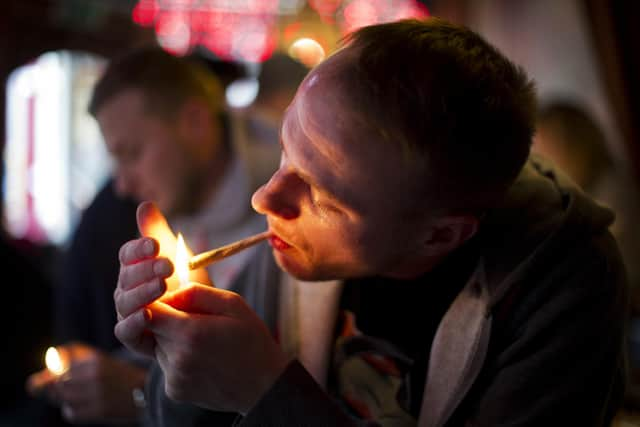Geert Wilders: Why the Netherlands isn't all like Amsterdam in wake of election win
When a country known for its liberal drugs laws and open red light district votes in a far-right, populist party with an extreme set of policies, it is not surprising that alarm bells begin to sound.
The general election in the Netherlands saw anti-Islam, far-right Geert Wilders and his Freedom Party take a clear victory over his nearest rival – a left-wing coalition – with 37 seats. While he has played down his anti-Islam views during the election campaign, saying he would put some of his more radical policies “in the fridge”, it is difficult to forget Mr Wilders has previously pledged to ban mosques and the Koran in the Netherlands entirely.
Advertisement
Hide AdAdvertisement
Hide AdMr Wilders’ election comes a year after Italy voted in far-right prime minister Giorgia Meloni and her Brothers of Italy party, and just months after Finland, previously governed by the liberal Sanna Marin, agreed a right-wing coalition to rule its government. Hungary is also led by a right-wing government, which, as I’ve previously discussed, is waging a war on LGBTQ+ rights.


The Dutch election result has come as something of a shock. The Netherlands is one of the founding members of the European Union – and is regarded as one of the most liberal nations in Europe. Yet outside of Amsterdam, the country is actually surprisingly conservative – with a small “C”.
Historically, Dutch society is constructed on a “pillar” system, based on religion, with everyone operating within their own social group. Schools, newspapers, recreational activities were all carried out within a pillar.
While this system began to break down in the 1960s, in some more rural parts of the country, it – or its legacy – remained for far longer. I have a Dutch friend, now in her 40s, who says she had never met anyone outside of her traditional Christian pillar until she went to university in a bigger city.
Shops in certain areas still often remain closed on Sundays, although Dutch law has allowed them to open since the 1990s. One swathe of the country – from Zeeland in the south-west, through the West-Betuwe and Veluwe, to parts of the province Overijssel in the north-east – is dubbed the Dutch “bible belt”.
Obviously a history of social conservatism does not always result in a right-wing government, but the international Dutch image of a tall, toking, free-thinking hippie does not necessarily represent the entire nation.
How hardline the Dutch government ends up being depends on the result of lengthy coalition talks, which could end up taking months.
In an “and finally” from me today, I wanted to draw attention to a study of European diets. The study, by Forbes Advisor, looked at UN and EU dietary trends for each country, as well as the affordability of a healthy diet.
Advertisement
Hide AdAdvertisement
Hide AdPerhaps unsurprisingly, the traditionally stodgy cuisine of Germany fares badly, with Germans consuming both the second-highest excess fat and third-highest amount of alcohol in Europe. Turkey has the second most unhealthy diet, with just 2.8 per cent of the population eating five or more portions of fruit and vegetables a day – the lowest in all surveyed countries.
The big twist comes in where the United Kingdom placed – eighth, out of 27 countries. Yes, our much-maligned food is considered among the healthiest in Europe, way above the Mediterranean diet of the Italians, or the olive oil-heavy diet popular in Spain.
Whether haggis and Irn-Bru consumption were taken into account isn’t clear. But we should take the win anyway.
Comments
Want to join the conversation? Please or to comment on this article.
